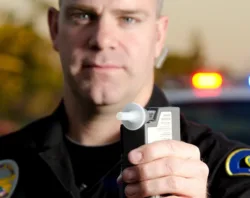
Every state has differing laws and penalties regarding DUIs, including Pennsylvania, and these laws are updated from time to time in order to keep citizens safe and accidents at bay.
Educating yourself on these laws not only can help you keep yourself accountable, but can give you the knowledge you need to look out for others in your community, be they friends, relatives or strangers.
What constitutes a DUI?
In 2003, new PA DUI laws were put into place which first and foremost lowered the blood alcohol content (BAC) requirement for a PA DUI from .10 to .08. This legislation also moved away from ordering punishment as the sole consequence, and mandated the need for alcohol treatment as a critical component of DUI enforcement.
Another change to the legislation at the same time takes into consideration the combination of a person’s BAC level with any previous offenses to determine DUI penalties. This allows for individuals with a first time DUI offense to receive treatment to help prevent the worsening of a potential substance abuse addiction, while still offering treatment as a viable recovery option for those with multiple offenses.
Three levels of DUI offenses
The way the severity of a DUI is determined is through a scale based on the level of blood alcohol content, with additional measures being taken if certain criteria are met.
The three levels are:
- General Impairment: .08 – .099% BAC;
- High BAC: .10 – .15% BAC;
- Highest BAC: .16% and higher
Other situations affecting whether an individual is classified as generally impaired, highly impaired or highest impaired include:
- Refusing to undergo breath or chemical testing;
- Driving impaired under the age of 21;
- Commercial vehicle or school bus drivers;
- Being the cause of an accident resulting in the injury of another person or property damage.
If any of these circumstances are present, the individual may receive a penalty greater than the BAC penalty alone requires.
Pennsylvania DUI Laws
According to the Pennsylvania Department of Transportation’s legislation on DUIs, the following list outlines the current mandates for DUI penalties.
General Impairment
No prior DUI offenses:
- Crime: ungraded misdemeanor;
- Penalty: up to six months of probation;
- Fine: $300;
- Education: alcohol highway safety school;
- Treatment: substance abuse treatment when ordered.
One prior DUI offense:
- Crime: ungraded misdemeanor;
- License: 12-month suspension;
- Penalty: five days to six months’ incarceration;
- Fine: $300 to $2,500;
- Education: alcohol highway safety school;
- Treatment substance abuse treatment when ordered;
- Ignition interlock: one year.
Two or more prior DUI offenses:
- Crime: 2nd degree misdemeanor;
- License: 12-month suspension;
- Penalty: 10 days to two years’ incarceration;
- Fine: $500 to $5,000;
- Treatment: substance abuse treatment when ordered;
- Ignition interlock: one year.
High BAC
No prior DUI offenses:
- Crime: ungraded misdemeanor;
- License: 12-month suspension;
- Penalty: 48 hours to six months’ incarceration;
- Fine: $500 to $5,000;
- Education: alcohol highway safety school;
- Treatment: substance abuse treatment when ordered.
One prior DUI offense:
- Crime: ungraded misdemeanor;
- License: 12-month suspension;
- Penalty: 30 days to six months’ incarceration;
- Fine: $750 to $5,000;
- Education: alcohol highway safety school;
- Treatment: substance abuse treatment when ordered;
- Ignition interlock: one year.
Two or more prior DUI offenses:
- Crime: 1st degree misdemeanor;
- License: 18-month suspension;
- Penalty: 90 days to five years’ incarceration;
- Fine: $1,500 to $10,000;
- Treatment: substance abuse treatment when ordered;
- Ignition interlock: one year.
Three or more prior DUI offenses:
- Crime: 1st degree misdemeanor;
- License: 18-month suspension;
- Penalty: one to five years’ incarceration;
- Fine: $1,500 to $10,000;
- Treatment: substance abuse treatment when ordered;
- Ignition interlock: one year.
Highest BAC or Controlled Substance
No prior DUI offenses:
- Crime: ungraded misdemeanor;
- License: 12-month suspension;
- Penalty: 72 hours to six months’ incarceration;
- Fine: $1,000 to $5,000;
- Education: alcohol highway safety school;
- Treatment: substance abuse treatment when ordered.
One prior DUI offense:
- Crime: 1st degree misdemeanor;
- License: 18-month suspension;
- Penalty: 90 days to five years’ incarceration;
- Fine: $1,500 to $10,000;
- Education: alcohol highway safety school;
- Treatment: substance abuse treatment when ordered;
- Ignition interlock: one year.
Two or more prior DUI offenses:
- Crime: 1st degree misdemeanor;
- License: 18-month suspension;
- Penalty: one to five years’ incarceration;
- Fine: $2,500 to $10,000;
- Treatment: substance abuse treatment when ordered;
- Ignition interlock: one year.
For more information, you can research further into local PA legislation, or learn more about addiction awareness and DUI treatment programs to understand the treatment possibilities being offered.
Concerned with a DUI?
If you or someone you know has received a DUI, the penalties and legislation can be overwhelming. However, these laws have been established with the hope of keeping local PA natives safe, in addition to providing sources of help and counseling for those struggling with a potential substance abuse addiction connected to the DUI.
To learn more, or to speak with a counselor about DUI treatment, contact Rehab After Work today. Reach out to our admissions department or give us a call at 610-644-6464.





